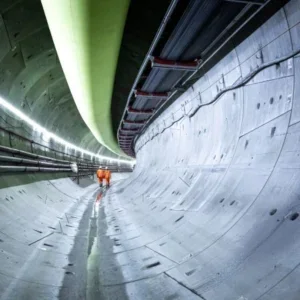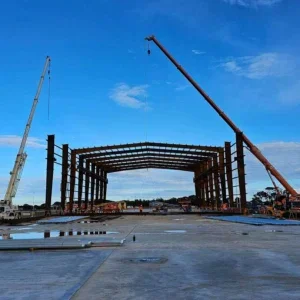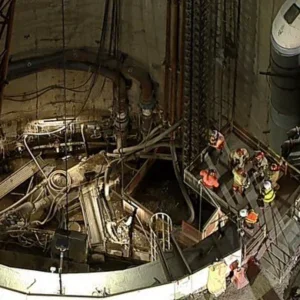Plans to store 77,000 tonnes of high level radio-active waste in a labyrinth of more than 90km of 5.5m to 7.5m diameter tunnels in Yucca Mountain, Nevada, in the United States took an important step forward in early May 2002 when a majority of the US House of Representatives voted to support the proposal. The 306 to 117 vote supports the February 2002 recommendation by the President Bush Administration to develop the vast underground repository (T&TI, May 2002).
The bill proceeds next to the US Senate where a decision is expected by early August. A positive vote was anticipated by observers. Reports suggest that opponents of the project in the Senate are expected to have a tough battle to persuade a majority to vote it down. A second majority in the Senate will overturn an official veto against the project lodged by the state Governor of Nevada.
With congressional approval, the Administration will apply for a construction license in 2004 from the Nuclear Regulatory Agency. This could take up to four years before construction of the first phase can begin. The tunnelled network of waste emplacement drifts and access adits are planned to be excavated through predominantly welded volcanic tuff using TBMs and roadheaders. Once constructed, another permit from the Nuclear Regulatory Commission to receive and possess nuclear waste is required before storage of the packages of waste can be placed in the repository.
Current progress of the project anticipates that storage at Yucca Mountain could begin by about 2010. More than 20 years of intense study has been undertaken to investigate the suitability of the Yucca Mountain site for long term storage and management of waste. The footprint of the proposed repository is located up to 300m below the surface and another 300m above the local, but hydrogologically isolated ground water table.
Developed at an estimated cost of $58bn over a 22-year period, the Yucca Mountain repository will be the world’s first long-term high-level underground nuclear waste repository and will be the largest single construction project undertaken in history to date.
Related Files
Yucca Mountain







